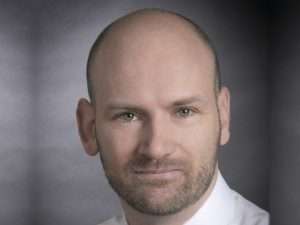 Flinders University
Flinders University
Research Field: Psychology
The world is a complex place and our brains can only concentrate on a few things at once, however the brain is continuously and passively monitoring our surrounding environment for change. The disruption of these “pre-attentive” processes, subtle, low-level components of attention, are disrupted in people with schizophrenia or Parkinson’s.
Dr Griffiths research studies the interactions between knowledge, uncertainty and selective attention. He is currently focused on using electrophysiological measures to study pre-attentive and covert attentional processes.
Oren’s science communication has included many media interviews, community presentations, as well as the development of a device for the BrainyBee program, that allowed students to compare neural activity while completing puzzles. Dr Griffiths received his PhD from the University of New South Wales in 2009, and is currently a lecturer at Flinders University.
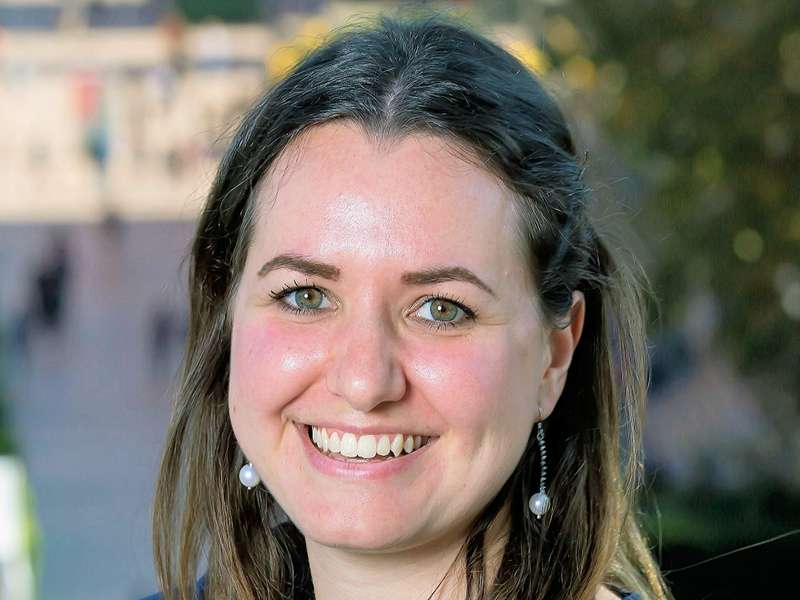
Dr Angelica Merlot
Lowy Cancer Research Centre, University of New South Wales
Research Field: Cancer Research
Angelica Merlot’s research is focused on developing new drugs and strategies to combat the deadliest cancers and prevent their growth, spread and adaptation to current drugs.
Cancer is a leading cause of death worldwide, with brain and pancreatic cancers two of the deadliest. Brain cancer in particular kills more children than any other disease and has a five-year survival rate of less than 20%. Even worse, pancreatic cancer has a 5-year survival rate of only ~9.8%, with the vast majority of patients succumbing to the disease within the first year of diagnosis. It is therefore of urgent importance to develop better treatment options and strategies for these patients.
Angelica’s research focuses on cancers that are almost always a death sentence, with her work to develop new anti-cancer drugs and to better understanding drug resistance and the tumour microenvironment.
Dr Angelica Merlot was awarded her PhD by the University of Sydney in 2013 and is currently is Scientia Research Fellow at the Children’s Cancer Institute, University of NSW.

Dr Chris Reid
Macquarie University
Research Field: Biological Sciences
Imagine a swarm of robots that can join together to create structures or tools as needed, or a blob of cells that transforms itself into a replacement ear, bladder or heart.
These capabilities are within reach if we can understand and harness the rules that govern how groups of simple interacting units achieve coordinated behaviour. We call these groups ‘complex systems’ and they span from physics to biology and operate on all scales, from global weather patterns to neurons in the brain.
Dr Chris Reid aims to advance our understanding of complex systems like tissue development and wound healing by uncovering knowledge about biological complex systems.
Chris researches biological complex systems such as ant colonies, honeybee hives and slime moulds to understand how simple interactions between individuals lead to the sophisticated capabilities observed at the level of the group.
By shedding light on biological complex systems, Chris aims to enhance our understanding of other complex systems like tissue development and wound healing; improve our problem-solving computer programs; and provide behavioural rules for swarms of robots to enhance their capabilities as a collective.
Chris’ public engagement is extensive, for example through his ‘Are you smarter than a slime mould?’ exhibit and the annual Minibeast Day event, where Macquarie researchers present invertebrates to children to showcase biodiversity and conservation.
Dr Chris Reid received his PhD from the University of Sydney in 2013 and is currently an ARC DECRA Fellow with the Department of Biological Sciences, Macquarie University.
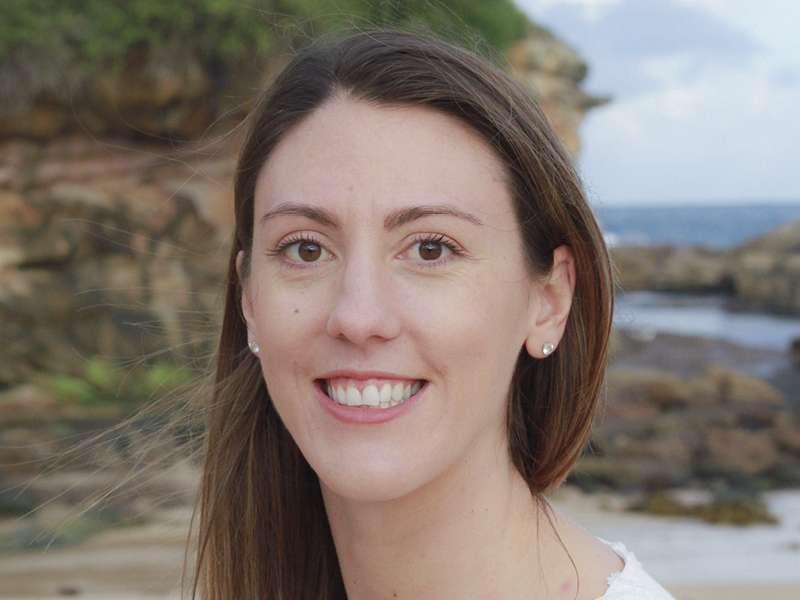
The Great Barrier Reef is one of the world’s natural wonders and houses over 7000 marine species, but Australia’s coral reefs are under immediate and accelerating loss due to climate stressors and reduced water quality.
To confront the crisis of progressively declining coral reef cover, marine bio-geochemist Emma Camp is enhancing our knowledge of reef resilience.
By studying the physiology, genetics and molecular aspects of populations of naturally stress resilient corals, Dr Camp aims to gain insight into how those populations adapted to survive such extremes and provide critical knowledge for management plans to restore and conserve the Great Barrier Reef.
Dr Camp’s research of ‘supercorals’ thriving in extreme mangrove lagoon conditions has contributed to new adaptive management options on the Great Barrier Reef and has also enhanced reef protection plans in New Caledonia, the Seychelles and the Cayman Islands.
Emma’s extensive public engagement has spanned social media campaigns, underwater photography and primary and secondary school visits. Emma is also a United Nations Young Leader for Sustainable Development Goals.
Dr Emma Camp was awarded her PhD from the University of Essex in 2015 and is currently an ARC DECRA and UTS Chancellor’s Postdoctoral Research Fellow with the Climate Change Cluster (C3), Faculty of Science, University of Technology Sydney.

Associate Professor Sally Gainsbury
University of Sydney
Research Field: Psychology
The internet provides many benefits but when it comes to gambling and gaming, the constant accessibility, ability to spend large sums of money quickly, and ongoing play online has resulted in some people developing serious problems.
As a leader in gambling psychology research, Associate Professor Sally Gainsbury is using science to inform responsible gambling strategies to promote healthy decision-making and reduce risk-taking.
A/Prof Sally Gainsbury investigates the psychology of addictive gambling and gaming, with a focus on the development of harm-minimisation strategies to prevent problems for vulnerable players, including young people.
There are a number of approaches in A/Prof Gainsbury’s research, including psychology, health sciences, public health, economics and business disciplines to investigate how gambling and gaming have been transformed by emerging technologies like internet gambling, online gaming, social media, blockchain, and virtual reality.
A/Prof Gainsbury is editor of an international peer-review journal, serves on three journal editorial boards and has participated in major conferences across four continents, including 10 keynote speeches, 33 plenary presentations and 19 plenary panels.
A/Prof Sally Gainsbury was awarded her PhD in 2010 by the University of Sydney and is currently Associate Professor, School of Psychology, and Co-Director, Gambling Treatment & Research Clinic at the University of Sydney.
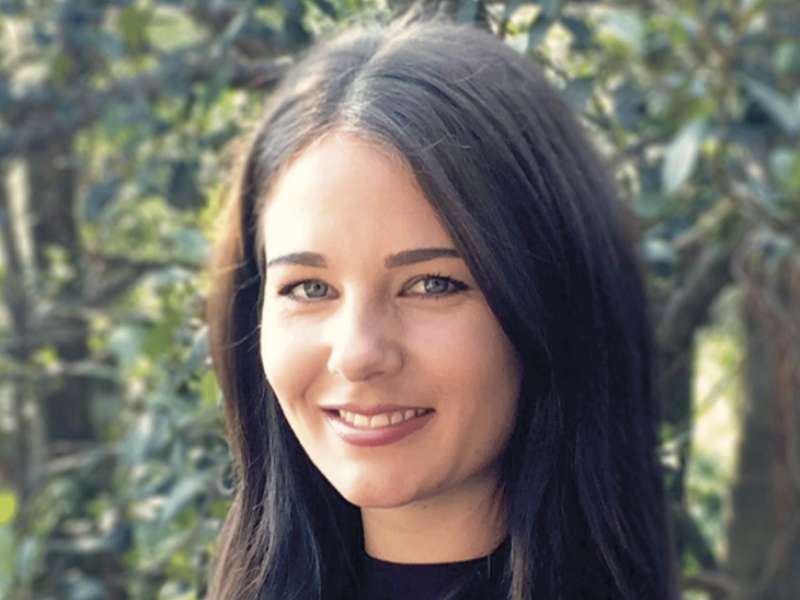
Dr Natalie Matosin
University of Wollongong
Research Field: Neuroscience
Dr Natalie Matosin’s research identifies potential drug targets aimed at developing new medications to improve quality of life for people living with mental illness.
Most of us carry genes that predispose us to mental illness. So why do only some develop these disorders while others do not? Mental illnesses like depression, post-traumatic stress disorder or anxiety affects one in five Australians at some point in their lives, but we don’t know exactly what triggers their development.
Dr Natalie Matosin aims to understand how stress increases the risk of mental illness by comparing the molecular makeup of biological samples – like slivers of brain or blood and saliva – from individuals with mental illness or who have experienced trauma against samples from the psychologically healthy.
By pinpointing differences, Natalie’s research identifies potential drug targets and provides a critical step towards developing new medications to improve quality of life for people who will suffer from a mental illness.
Natalie’s public outreach is extensive. In 2017, Natalie gave a TEDx Hamburg talk on the responsibility of scientists to communicate their findings to the public. She has written numerous media articles and participates in events to promote awareness of mental health issues.
Dr Natalie Matosin received her PhD from the University of Wollongong in 2015 and is currently a NHMRC Research Fellow at the Illawarra Health and Medical Institute and Molecular Horizons Institute, University of Wollongong.
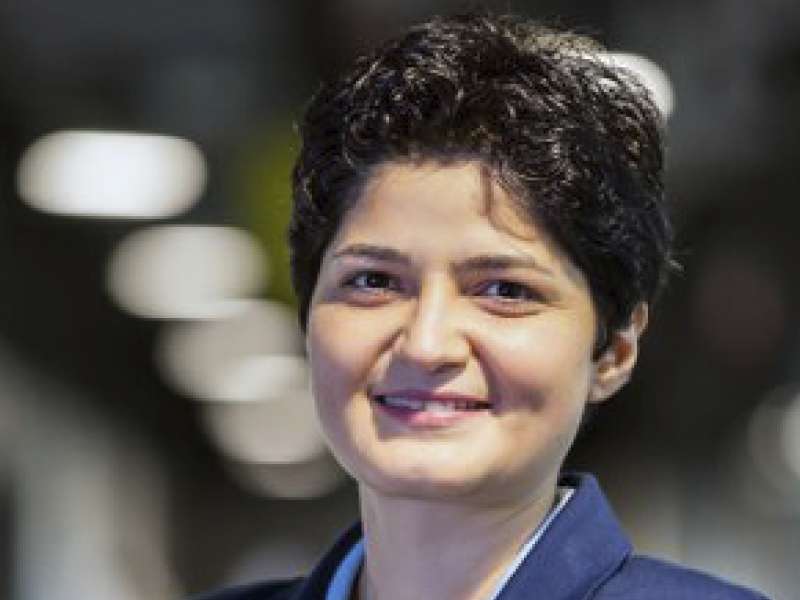
Dr Noushin Nasiri
Macquarie University
Research Field: Nanotechnoloy
Dr Noushin Nasiri is an engineer in the field of nanotechnology whose research aims to develop breath tests that can diagnose diseases like diabetes and breast cancer in their very early stages.
Her research is focused on developing nanosensors to facilitate early, non-invasive disease diagnosis through biomarkers in our breath.
Each nanosensor is made of billions of nanoparticles and is only a few atoms across, so small it could fit inside our phones and check our health daily.
The implications of Noushin’s research are far-reaching – a breath test is cheaper and less invasive than existing tests and almost instantaneous, which could make detection more widely accessible on a global scale and result in higher recovery rates and lower treatment costs.
Outside the lab, Noushin has presented her research widely, including at TEDx Sydney Salon, on the ABC’s Ockham’s Razor and at Sydney Spark Festival. Noushin shares her passion for STEM with the next generation of researchers by regularly supporting primary and high school events.
Dr Noushin Nasiri was awarded her PhD by the Australian National University in 2017 and is currently a Lecturer with the School of Engineering at Macquarie University.
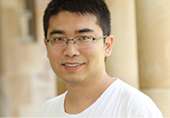
Dr Qilin Wang
University of Technology Sydney
Research Field: Environmental Engineering
Dr Qilin Wang’s research has contributed to the development of sustainable wastewater management systems with low to zero greenhouse gas emissions.
Nitrous oxide (N₂O) is a potent greenhouse gas that can damage the ozone layer and can be directly emitted from wastewater treatment systems.
With a global warming potential stronger than carbon dioxide, the development of detailed knowledge and reliable predictive tools for quantifying and mitigating N₂O emissions is extremely important for achieving greenhouse gas-neutral wastewater treatment systems.
Dr Qilin Wang’s research has contributed to the development of tools and biotechnologies to achieve low to zero greenhouse gas emissions in wastewater systems. Qilin revealed that organics in wastewater can cause significant N₂O production from side-stream wastewater treatment systems and developed a model to successfully predict emissions from systems in Australia and overseas.
Qilin’s research enhances our ability to mitigate greenhouse emissions from our wastewater and paves the way for achieving larger scale greenhouse gas neutral wastewater treatment.
Dr Wang’s work has been featured during National Science Week and mentioned on ABC Radio and his public outreach includes lectures to the general community and students.
Dr Qilin Wang received his PhD from The University of Queensland in 2014 and is currently an ARC DECRA Fellow and Senior Lecturer at the Centre for Technology in Water and Wastewater, School of Civil and Environmental Engineering, Faculty of Engineering and IT, University of Technology Sydney.

Dr Simon Clulow
Macquarie University
Research Field: Conservation Biology
With Earth in the midst of what scientists describe as the planet’s sixth mass extinction event, Dr Simon Clulow’s passion for conservation and interest in reproductive biology has led to his strong advocacy for stopping species extinctions through biotechnological means.
Dr Clulow’s work on de-extinction (or resurrecting extinct species), controlling global pathogens such as the chytrid fungus, and understanding the impact of the invasive cane toad on Australia’s fauna has received considerable media attention, notably his work on a cutting-edge collaborative de-extinction project that saw the revival of live embryos of an extinct frog species through cloning.
The conservation ecologist’s research is diverse and interdisciplinary, focused on the fields of ecology, behaviour, conservation and reproductive biology, specifically assisted reproductive technologies and gene banking within terrestrial vertebrates.
Dr Clulow’s research has had significant impact, for example a study he led demonstrated that a simple environmental manipulation can significantly reduce levels of the chytrid fungus responsible for the decline and extinction of frog populations and species worldwide.
Simon’s published work includes 58 peer-reviewed papers, a book chapter and the book, A Complete Guide to Frogs of Australia.
Dr Simon Clulow was awarded his PhD in 2017 by the University of Newcastle and is currently a Postdoctoral Research Fellow with the Department of Biological Sciences at Macquarie University.

The Kirby Institute, University of New South Wales
Research Field: Sexual Health
Professor Rebecca Guy’s research focuses on the implementation and evaluation of public health interventions related to HIV and sexually transmissible infections (STIs).
The central goal of Rebecca’s work is to reduce the social and economic health burden of HIV and STIs, which requires extensive and effective engagement with policy makers, stakeholders and the general public.
As an example of her positive impact on policy, Rebecca implemented the first research on point-of-care testing for gonorrhoea and chlamydia in remote Aboriginal communities, subsequently expanded across Northern Australia and now recommended in the National STI Strategy.
At an international level, Professor Guy engages with policy makers through membership on the World Health Organization Guidelines Development Group for HIV self-testing. At a national level, she was a member of the Australian Government’s key advisory body on the national response and management of blood borne viruses and STIs.
Professor Rebecca Guy was awarded her PhD by Monash University in 2008 and is currently Professor with the Faculty of Medicine and Head of the Surveillance Evaluation and Research Program at The Kirby Institute, University of New South Wales.
 Flinders University
Flinders University








